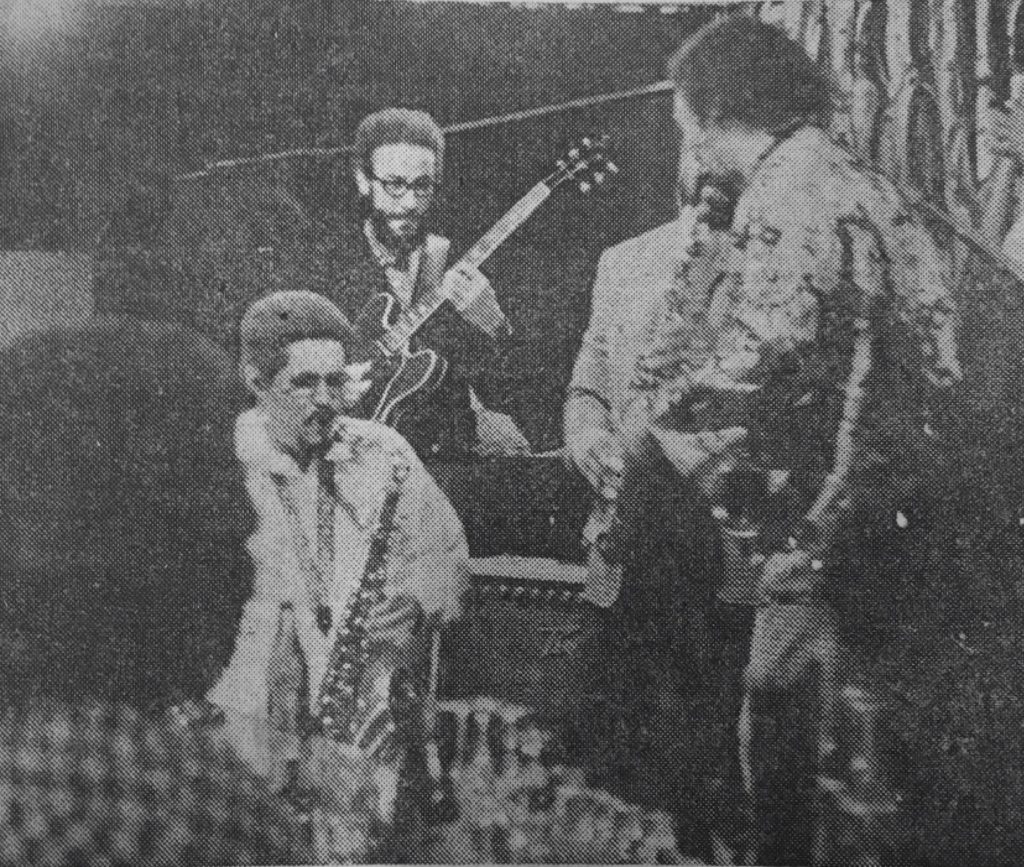Roland Faulkner, Unsung Jazz Guitar Hero
A member of the community of musicians that are part of a great tradition of jazz that continues to live and operate in Chicago, was the tragically unheralded guitarist named Roland Faulkner.
I first met Roland in much the same surreptitious manner. It was the latter part of the 1980s and I was on an errand to pick up take-out dinner that we’d ordered from an Italian restaurant in Chicago’s Lincoln Park neighborhood. As I waited for the food, I was jarred by the sheer mastery of live, solo jazz guitar that was being played by a gentleman in the corner of the restaurant. After hearing two or three tunes and marveling at his command of his instrument and music in general, I made my way over to find out who he was. I felt it impossible for someone that good to be playing in such a low-profile setting. There should’ve been a cover charge and tables, or rather, rows of theater seats, full of listeners with ears affixed to every note and chord of every phrase he created.
After chatting and exchanging numbers that night, Roland and I would stay acquainted for years afterwards. Occasionally, I’d call him to replace me on some gigs in Chicago if I was out of town. For a period, we would often see each other working out at the Lincoln Park YMCA. I’m not ashamed to say that I wish I’d talked to him more about his career in music. And also that I’d been more like the person I am today, who might have tried to assist or advocate for him however I could. I’m sure he had some great stories to tell about his work with Lionel Hampton, Sammy Davis, Sarah Vaughn, Billie Holliday, Joe Williams, Lena Horne, Muddy Waters, Howlin’ Wolf, Brother Jack McDuff, and Eddie Harris.

It’s only as a result of commodification and codification that we have a predominance of jazz that lacks personality, feeling, soul and originality.
It’s at this point that I must say that it irks me that a musical giant and Chicago native (one with the talent of a national treasure) could be walking around as he was, like an invisible man, in the city of his birth. It’s a travesty that I’ll never quite understand or accept. We enjoy jazz and say that we love it, that we respect, revere and support its artists and practitioners. Yet we don’t see them unless and until others from outside our zip codes do. It’s as though we don’t really know what to look for, have the chutzpa to proclaim our homegrown’s greatness, or know exactly what to do to support them. I’ve always felt it best – especially in jazz – to allow musicians the latitude to inform the public, as well as the jazz cognoscenti (in the form of organizations or individuals) about the next great jazz discoveries.
Jazz music is a lifelong process involving intensive study, practice, apprenticeship, discovery, self-actualization and evolution. The development and grooming of jazz wunderkinds is best left to the musicians themselves, usually those who have been through this process themselves. It’s a perfectly and naturally organic process that successfully yielded all of the great jazz of the 20th century. That era produced innumerable original musical voices and personalities, all coming from within groups of elders and peers. It’s only as a result of commodification and codification that we have a predominance of jazz that lacks personality, feeling, soul and originality.
Listen to Roland here on Eddie Harris’s “Salute to Bird” (@1:03) and tell me if those four characteristics – personality, feeling, soul and originality – aren’t abounding. Better yet, let me tell you. It’s all there! The time-feel, naturally informed flow of ideas, sound and vibe…
All Hail Roland Faulkner, jazz guitarist extraordinaire! Not a member of “great man theory ” jazz history, but of the Chicago community of great jazz men of the 1960s – 2000s.
